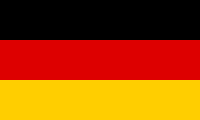List of Intangible Cultural Heritage elements in Germany

The United Nations Educational, Scientific and Cultural Organisation (UNESCO) intangible cultural heritage elements are the non-physical traditions and practices performed by a people. As part of a country's cultural heritage, they include celebrations, festivals, performances, oral traditions, music, and the making of handicrafts.[1] The "intangible cultural heritage" is defined by the Convention for the Safeguarding of Intangible Cultural Heritage, drafted in 2003[2] and took effect in 2006.[3] Inscription of new heritage elements on the UNESCO Intangible Cultural Heritage Lists is determined by the Intergovernmental Committee for the Safeguarding of Intangible Cultural Heritage, an organisation established by the convention.[4]
Germany ratified the convention on 10 April 2013.
Intangible Cultural Heritage elements[edit]
Representative List[edit]
| Name | Image | Year | No. | Description |
|---|---|---|---|---|
| Idea and practice of organizing shared interests in cooperatives | 2016 | 01200 | ||
| Organ craftsmanship and music | 
|
2017 | 01277 | |
| Blaudruck/Modrotisk/Kékfestés/Modrotlač, resist block printing and indigo dyeing in Europe +[a] | 2018 | 01365 | ||
| Falconry, a living human heritage +[b] | 
|
2021 | 01708 | |
| The practice of Modern Dance in Germany | 
|
2022 | 01858 | |
| Timber rafting +[c] | 
|
2022 | 01866 | Timber rafting is a method of transporting felled tree trunks by tying them together to make rafts, which are then drifted or pulled downriver, or across a lake or other body of water. |
| Knowledge, craft and skills of handmade glass production +[d] | 
|
2023 | 01961 | |
| Midwifery: knowledge, skills and practices +[e] | 2023 | 01968 | A midwife is a health professional who cares for mothers and newborns. | |
| Traditional irrigation: knowledge, technique, and organization +[f] | 2023 | 01979 |
Good Safeguarding Practices[edit]
| Name | Year | No. | Description |
|---|---|---|---|
| Craft techniques and customary practices of cathedral workshops, or Bauhütten, in Europe, know-how, transmission, development of knowledge and innovation +[g] | 2020 | 01558 | A Bauhütten (cathedral workshop), is a structure dedicated to the construction, maintenance and restoration of a monument with a specific mode of operation, known as Bauhüttenwesen. |
See also[edit]
Notes[edit]
- ^ Shared with Austria, Czechia, Hungary and Slovakia.
- ^ Shared with Austria, Belgium, Croatia, Czechia, France, Hungary, Ireland, Italy, Kazakhstan, Republic of Korea, Kyrgyzstan, Mongolia, Morocco, Netherlands, Pakistan, Poland, Portugal, Qatar, Saudi Arabia, Slovakia, Spain, Syria, and the United Arab Emirates.
- ^ Shared with Austria, Czechia, Latvia, Poland, and Spain.
- ^ Shared with Czechia, Finland, France, Hungary, and Spain.
- ^ Shared with Colombia, Cyprus, Kyrgyzstan, Luxembourg, Nigeria, Slovenia, and Togo.
- ^ Shared with Austria, Belgium, Italy, Luxembourg, Netherlands, and Switzerland.
- ^ Shared with Austria, France, Norway, and Switzerland.
References[edit]
- ^ "What is Intangible Cultural Heritage?". UNESCO Intangible Cultural Heritage. Retrieved 13 January 2024.
- ^ "Text of the Convention for the Safeguarding of Intangible Cultural Heritage". UNESCO Intangible Cultural Heritage. Retrieved 13 January 2024.
- ^ "The States Parties to the Convention for the Safeguarding of the Intangible Cultural Heritage (2003)". UNESCO Intangible Cultural Heritage. Retrieved 13 January 2024.
- ^ "Functions of the Intergovernmental Committee for the Safeguarding of Intangible Cultural Heritage". UNESCO Intangible Cultural Heritage. Retrieved 13 January 2024.
External links[edit]
- UNESCO Intangible Cultural Heritage: Official site
- UNESCO Intangible Cultural Heritage in Germany: Official site


